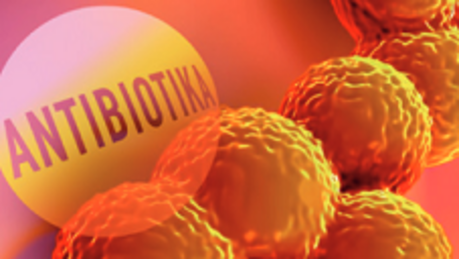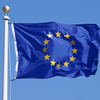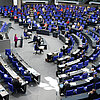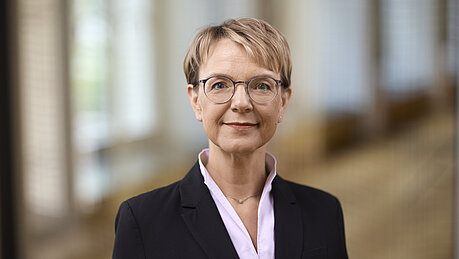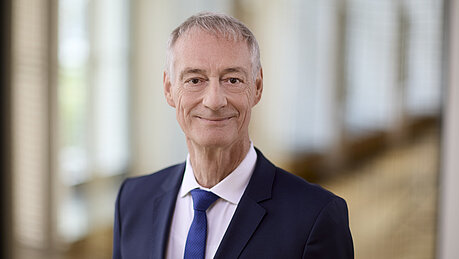Closing of G7 Health Ministers’ Meeting: Far-reaching decisions adopted
The health ministers of the G7 countries have agreed on a pact to fight pandemics. Its aim is to identify outbreaks faster in the future and mount a more effective response. To this end, expert networks are to be set up worldwide. This is the result of the two-day G7 Health Minister's Meeting that was held in Berlin from 19–20 May 2022.
© Copyright: Photothek/BMG
Die G7-Gesundheitsministerinnen und -minister vor dem Roten Rathaus in Berlin am 19. Mai 2022
The health ministers of the G7 countries in front of the Rotes Rathaus in Berlin on May 19, 2022
Global crises force the leading industrial countries to take action. Such crises show how important it is to band together internationally in order to meet these challenges. And to do so today, since we need to help Ukraine, protect the world from new pandemics, limit the impact of climate change and maintain the efficacy of antibiotics. It is a great achievement that as the G7 we have succeeded in agreeing on a pandemic pact. In doing so, we underline the following: This pandemic will not be the last. We must take precautions today to avoid a new surprise tomorrow.
The decisions in detail:
- “G7 Pact for Pandemic Readiness”
This worldwide pandemic pact strengthens early warning systems for effective pandemic preparedness. The WHO Hub for Pandemic and Epidemic Intelligence in Berlin will serve as a central hub so that data can be faster and better analysed and used. In addition, more experts are to be educated and trained who can then form networks to identify and control outbreaks as early as possible. WHO, which plays a vital coordinating role in the area of global health, is to be strengthened financially. The G7 want to increase their mandatory contributions by 50 percent in the long term so that WHO is better able to fulfil its leadership role. - Support for Ukraine
The G7 condemn in the strongest possible terms the unjustified, unprovoked and illegal Russian war of aggression against Ukraine. In this context, they emphasised the extensive disruption of the Ukrainian health system brought about by the Russian war of aggression. Hundreds of hospitals and healthcare facilities have been damaged or destroyed by attacks and large numbers of health workers displaced. The G7 commit to continuing their support for Ukraine with a view to strengthening the health system's functioning and rebuilding, now and in future. - Antimicrobial resistance
The G7 want to put all of their efforts into combating the silent pandemic of antimicrobial resistance. Antimicrobial resistance costs more than a million lives every year worldwide and brings in its wake enormous financial and social consequences. Additionally, inefficacious or unavailable antimicrobial treatments often lead to blood poisoning (sepsis) as a result of which an estimated 11 million people worldwide die each year. That is why the G7 will actively finance the research and development of urgently needed new antimicrobials. Moreover, the prudent use of antimicrobials is to be improved. In this respect, the G7 plans to decide on national goals by the end of 2023. Additionally, we intend to strengthen the early detection, diagnosis and treatment of sepsis. - Climate change and health
For the first time, the G7 countries have undertaken to make their health systems climate-neutral by 2050 at the latest. Our aim must be to better protect people around the world from the health impact of climate change. This includes using early warning systems more effectively for health protection, integrating climate adaptation measures into the training of health professionals and promoting cooperation between G7 public health institutes on climate and health.
During their meeting, the health ministers also held discussions with their G7 development and finance ministerial counterparts.
You can download the outcome documents here:
Review of the G7 Health Ministers Meeting
+++ Thursday, May 19, 2022 +++
G7 Health Ministers meet in Berlin
The G7 Health Ministers came together this morning in Berlin. At the meeting with his counterparts from 19-20 May 2022, Federal Minister of Health Prof. Karl Lauterbach will be discussing topics that include a pandemic pact, strengthening the role of WHO and preparedness for future pandemics. Furthermore, a joint consultation will be held with the G7 Ministers for Economic Cooperation and Development and the G7 Finance Ministers. The Federal Minister of Health began by stating:
We need to coordinate global pandemic preparedness and response even better. But pandemic response also requires practice. That is why, on the first day of the meeting, we will be simulating a new pandemic scenario and discussing how existing gaps can be closed. And this includes further strengthening WHO’s coordinating role.
One of the lessons learned from the COVID-19 pandemic is the need to make the global health architecture more robust, because this pandemic will not have been the last. So as to better respond to future pandemics, we must act jointly and in a globally coordinated fashion. To this end, we need a strong WHO, global pandemic monitoring and mobile, well-trained intervention teams on the ground. How these structures can be put in place is one of the topics ministers will be discussing during their two-day meeting, together with representatives of WHO and the EU Commission.
G7 Health Ministers’ Meeting in Berlin Helping Ukraine rebuild
The health ministers of the major industrialised countries wish to assist Ukraine in its reconstruction efforts. Federal Minister of Health Prof. Karl Lauterbach affirmed this after talks in Berlin with the G7 Development Ministers and G7 Health Ministers regarding the impact on that country’s health infrastructure.
Ukraine does not only need arms; it needs hospitals and medical care as well. The G7 Ministers condemn the bombing of healthcare facilities and are discussing how to provide assistance to rebuild the country’s health infrastructure.
The pandemic is not yet over and we need to be prepared. Vaccines provide the most effective protection. However, also in other areas, such as the control of antimicrobial resistance and the health impact of climate change, action needs to take the form of cross-sectoral cooperation. In this context, a fairly distributed global supply of vaccines to protect populations in case of a pandemic, but also from other diseases such as malaria, for example, is just as important as investing in research to prevent antimicrobial resistance.
Not only the war in Ukraine renders it clear that today's health policy also always constitutes global policy. In the course of their meeting, the ministers will be discussing a global pandemic pact that will make it possible to identify future outbreaks faster and respond to these more effectively. In this context we will be simulating a smallpox pandemic together with WHO to determine whether effective lessons have been learned from the mistakes of the past. Furthermore, antimicrobial resistance and the effects of climate change on health are on the agenda of the two-day consultations. These ambitious objectives require cross-sectoral collaboration and financial resources. Finally, the G7 Health Ministers will meet with the G7 Finance Ministers for joint discussions on Friday.
You can download the Chairs’ Summary – Joint Working Session of the G7 Development and Health Ministers “Supporting vaccine equity and pandemic preparedness in developing countries” here:
Additional information
-
Germany’s 2022 G7 Presidency
Germany will be using its G7 Presidency to foster healthy lives, shared community on a sustainable planet, economic stability, investment in a better future and strong togetherness worldwide.
-
G7 Germany 2022 (Offical)
Federal government information page on the German G7 presidency in 2022.



